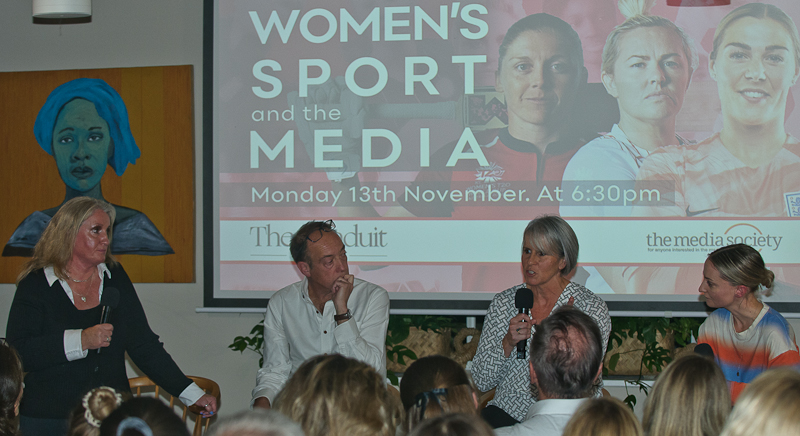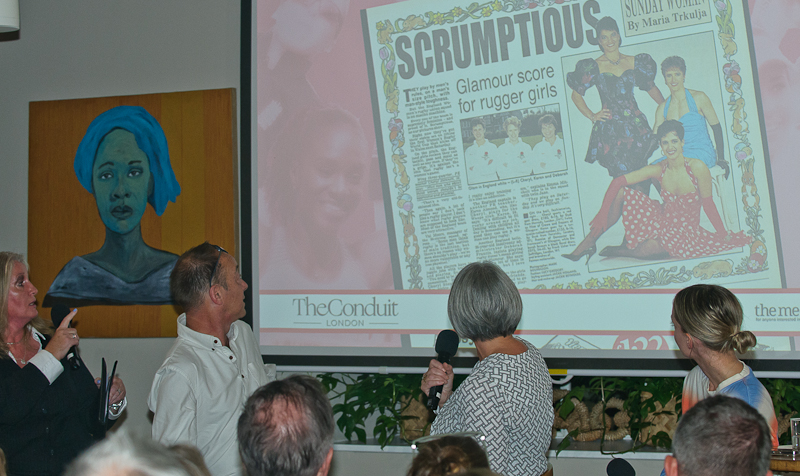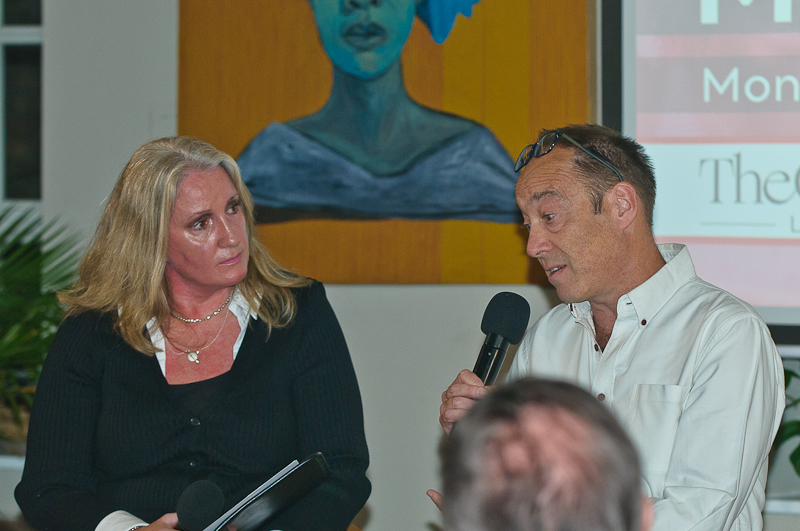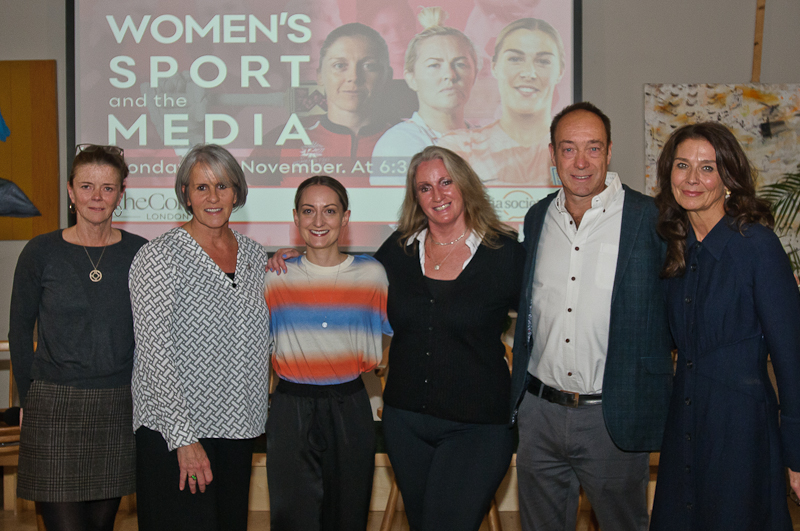The Media Society presents “Women’s Sport and the Media”: A conversation on past mistakes, progress, and hope for the future
This past Monday in Covent Garden was spent discussing the state of women’s sport coverage – the good, the bad, and the hopeful. The event was moderated by journalist Sue Thearle, the first female reporter on Match of the Day.
She was joined by Sue Anstiss, author and director of Game On: The Unstoppable Rise of Women’s Sport; Dr. Ali Bowes, Sociology of Sport senior lecturer at Nottingham Trent University; and Owen Slot, Chief Sports Writer at The Times.

The discussion ranged from the importance of language, the state of paper and broadcast media coverage, and the commercialisation of women’s sports.
The importance of language and representation
“Language matters. Representation matters.”
These words stated by Thearle seem so simple, yet are quite often forgotten or ignored. For so long, female athletes have been ultra-feminised and stereotyped by the media via headline wording, the questions they are asked, and the pictures taken of them. The central storyline is often that the athlete is a woman. That is the story. That becomes her defining characteristic.

Of course, representation and diversity in the media is about far more than gender. This hour-long discussion focused mostly on gender, but the panellists rightfully called this out as just one piece of the puzzle.
Representation across an organisation is the only way to systemically improve coverage. In fact, many media organisations make it difficult to even find who makes up their company. It is this lack of transparency that gives consumers pause.
Additionally, the panellists discussed the culturally ingrained way we differentiate gender in sports. Why is one football tournament called the FIFA Women’s World Cup, while the other is simply the FIFA World Cup? Or the Premier League versus the Women’s Super League? This gender prefacing once again shows society’s and the media’s gender hierarchy.
Anstiss believes that doing this equally across sports would help elevate how we view women’s sports. The Game On author hopes this becomes the norm for her kids’ generation and based on the audience’s reaction, they hope the same.
Stop comparing
Comparing women’s and men’s games is a lazy, yet common media practice. How many of us still hear about the U-15 Texas boys’ team beating the US Women’s National Team in a practice game in 2017? The sexism in the comment sections of articles covering these types of events is enough to make one sick.
Further, this type of coverage usually lacks nuance in its gendered arguments – especially of differing strengths, playing styles, and historical biases.
Remember, it was relatively recently that women gained permission to play sports legally and professionally. The 1970s and 80s were not that long ago.
Hopefully, future generations never know the societal belief that men’s games are the norm and that women’s sport is lesser-than. The men versus women comparisons perpetuate this idea. It is the duty of the media to move past this.
Media accountability
The Times’ Slot admitted that the print media has historically lagged behind the broadcast media’s coverage of women’s sport. Further, he discussed mistakes made by print journalists. Positively, Slot is hopeful that print media is catching up with broadcast coverage and working to atone for past mistakes.

As women’s sport grows, the panellists warned against following the same path set by men’s sport. Following the same path strips women’s sport fans and athletes of their innate culture. The panellists reiterated the importance of learning from mistakes in the men’s game, while ensuring the focus remains specifically on the needs of women’s sport.
One of the challenges the field faces is balancing commercial interests with its core values. How do we grow the game without erasing what fans love most about women’s sport? It’s a dynamic that continues to evolve. These growing pains are to be expected and necessary for the growth of the game.
In addition to the topics discussed, the personnel make-up of the panel was also a strength of the event. The openness of the panellists allowed for the audience and panellists themselves to constructively question each other’s statements.
For example, the first question of the evening related to why women’s sport coverage lags so far behind men’s coverage. Slot believes that written media organisations do not think they have enough women’s sport readers to consistently cover.
Later, an audience member pushed back on this. She asked if perhaps the issue isn’t a lack of potential readers, but how the written media currently covers women’s sports. Essentially, maybe it’s not that people don’t want to read about women’s sport, it’s just that they don’t want to read what’s currently available.

Despite what Gianni Infantino would like us to believe, doors are not simply waiting to be opened by women. It takes those at the top to make real, systemic changes.
There is still much work to do, but events like The Media Society’s Women’s Sport and the Media highlight the progress that has already taken place.
The room this past Monday night was packed with people who want to do good. That is a reason for hope in the fight for equity in sport.